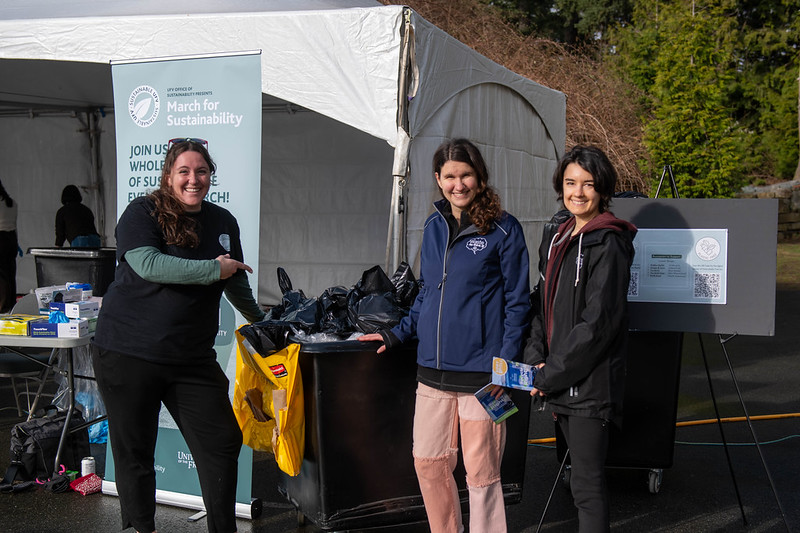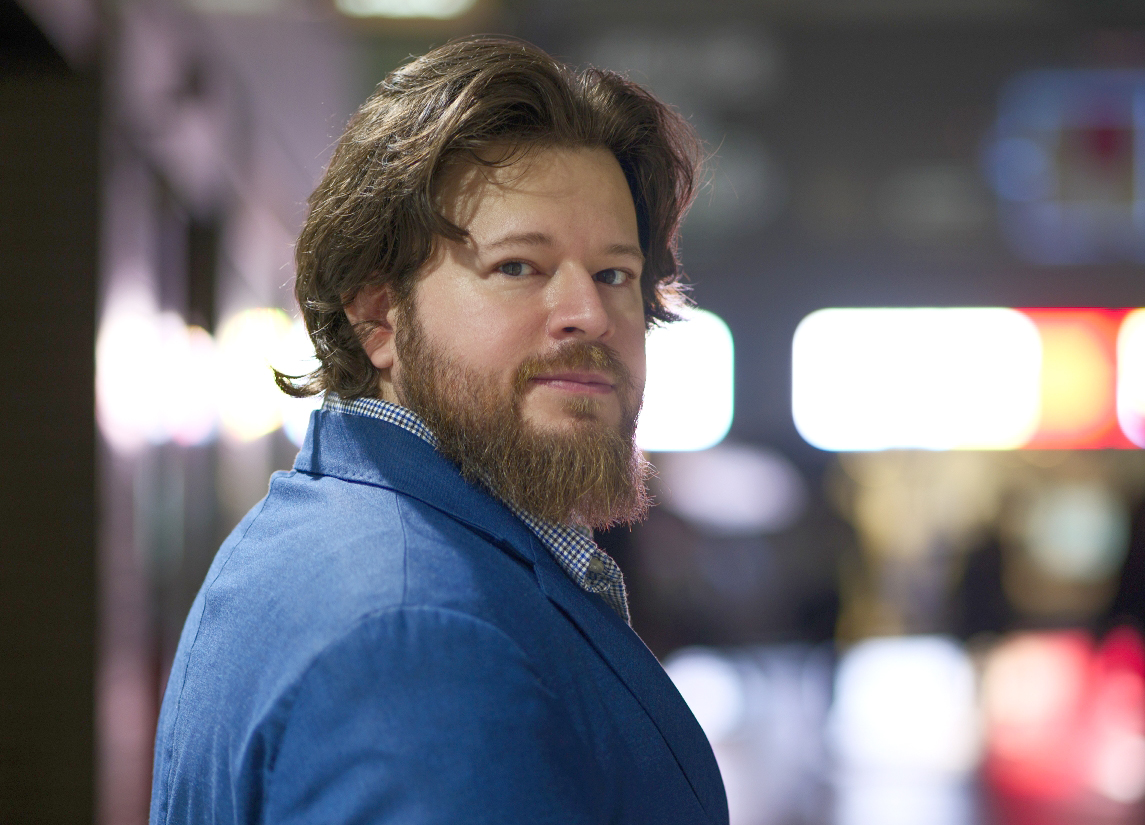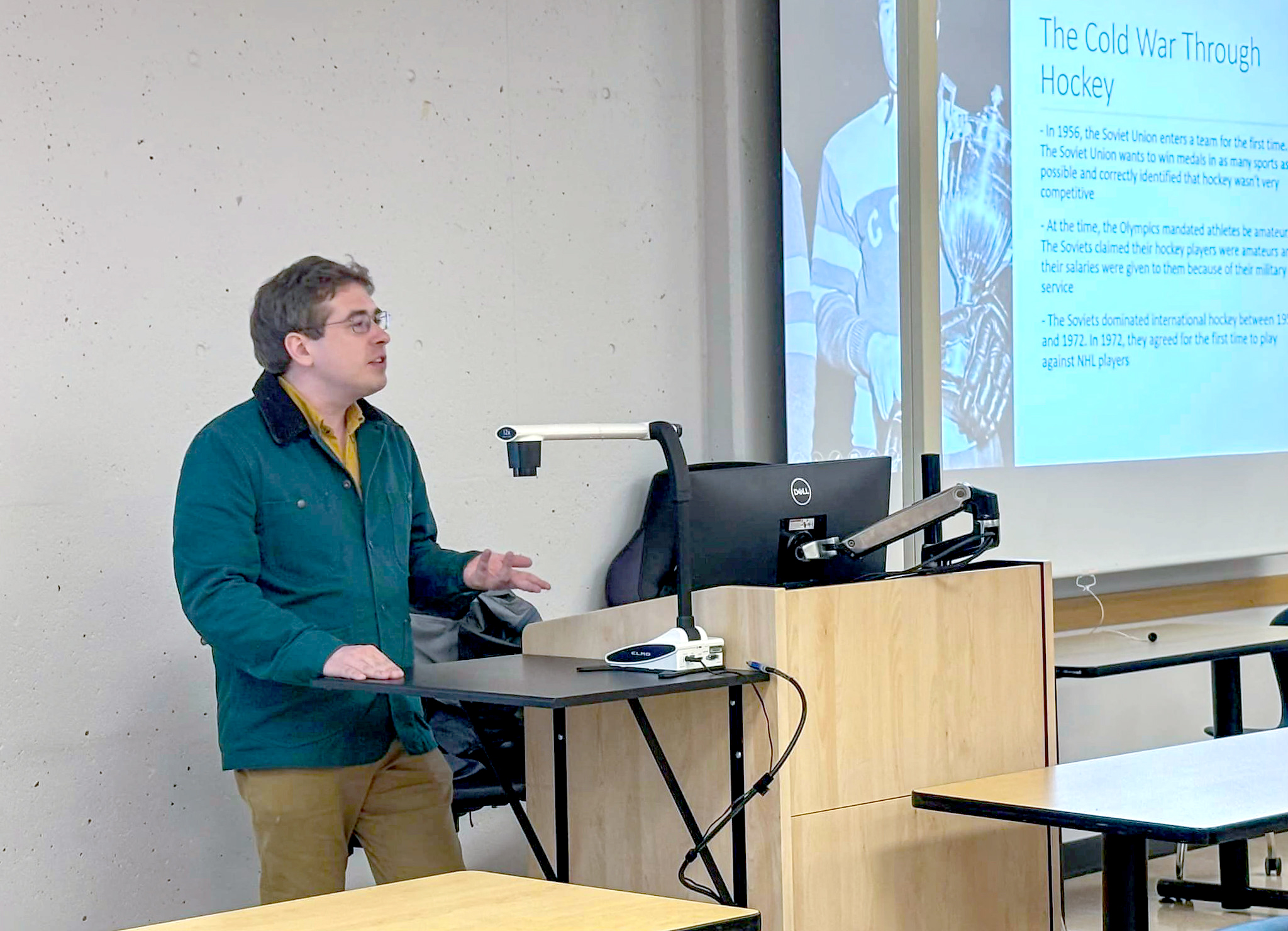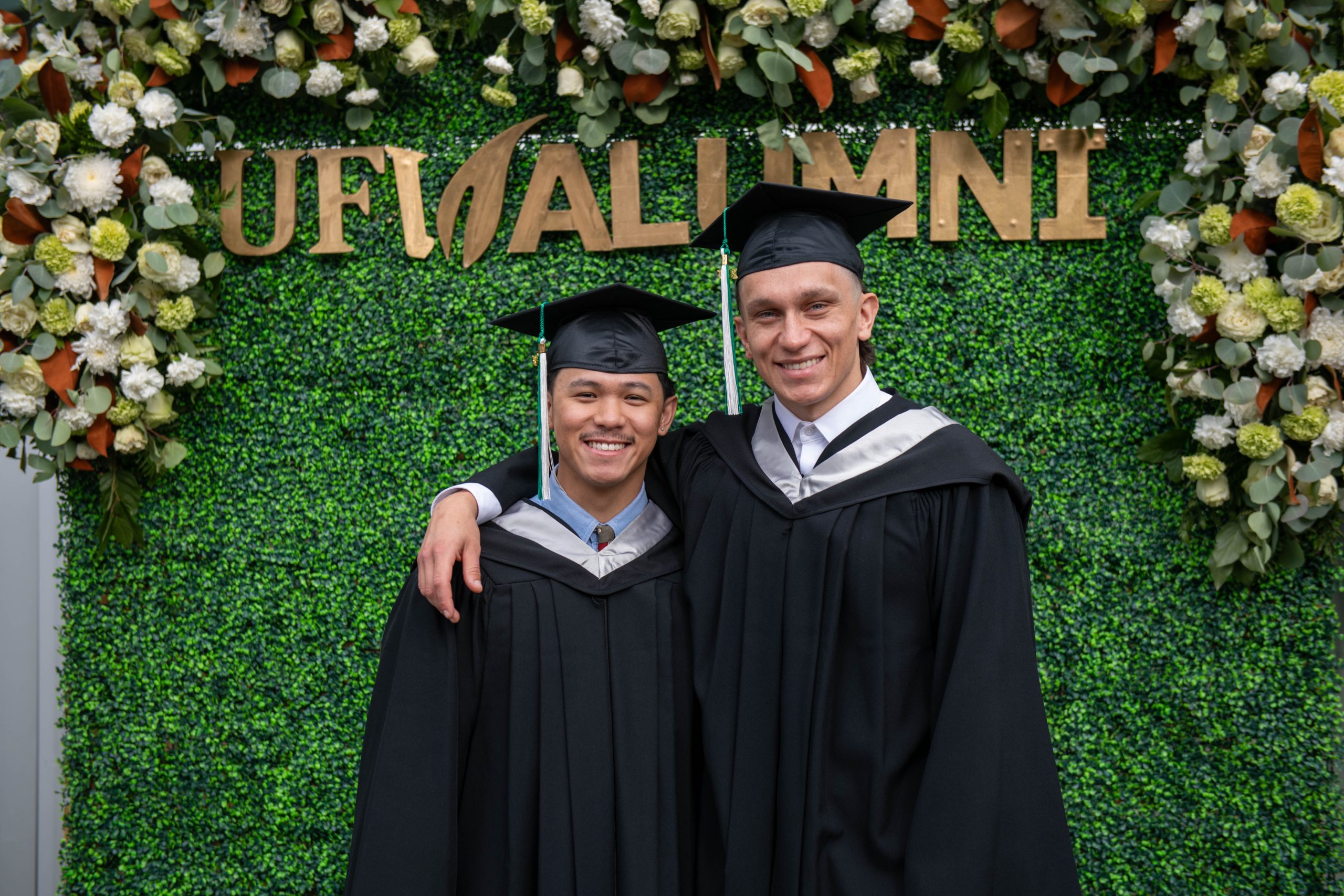Lessons learned in UFV waste audit
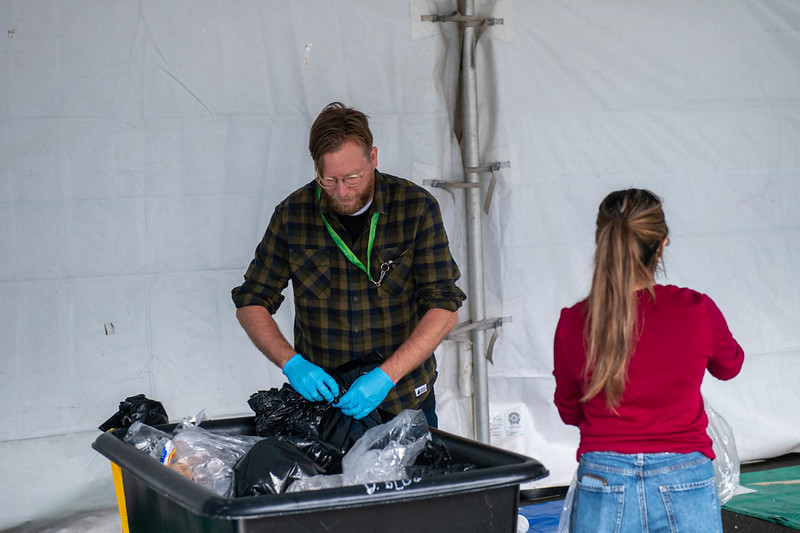
The 2024 Waste Audit produced valuable results for UFV’s Office of Sustainability and will serve as another step to UFV becoming a net-zero campus. The event was held March 21 as part of UFV’s March for Sustainability, a series of events throughout the month of March focused on increasing community engagement on topics such as climate change, biodiversity, sustainable agriculture, and gender diversity.
For the waste audit, employees from the Office of Sustainability were joined by enthusiastic volunteers, collecting and sorting one day’s worth of waste from buildings D, G, and the SUB on the Abbotsford campus.
“Those buildings were chosen because they’re some of our most used spaces (on campus) and they have food services in them,” says Alicia Nightingale from the Office of Sustainability. “We know a lot of our waste is related to food, and the idea was to have all the waste in one space to see what’s being thrown away.
“Once we know that, we can see if there are any issues to address.”
Waste was sorted into 21 categories like paper cups, rigid and flexible plastic packaging, mixed paper, and miscellaneous garbage.
“We also had categories for contaminated paper and plastic packaging, which happens when it’s covered with food and it’s not clean enough to recycle,” Nightingale says. “Almost a quarter of the waste was found to be contaminated.”
One lesson learned is that disposable coffee cups have a significant impact on UFV’s waste.
“People have their coffee cups and when they get to a recycling bin there’s a little bit left in the bottom,” explains Alara Cremer from the Office of Sustainability. “That little bit of coffee spills and contaminates everything.
“We recognize going to a washroom to clean out a cup before recycling may be inconvenient, so we need to provide a place where students can easily dump that excess coffee.”
Or better yet, encourage widespread adoption of reusable coffee cups.
Another problem was ‘nested’ garbage. If you’ve ever stuck small bits of waste like burger wrappers inside a paper bag and chucked it, that’s nested garbage.
“All of those things individually might be recyclable, but they can’t be recycled because they’re packed into that bag and not easily separated out,” Nightingale says. “That was a problem we identified, and it’s something we want to start addressing. Good recycling etiquette such as rinsing containers, separating lids from cups, and placing items loose in the bins, not stuffed within another box or bag, gives our recycling a better chance of being recycled. We also want to make sure people are focusing on reducing waste they produce.”
Of the waste collected, the largest group by weight was miscellaneous garbage (including nested items) at 20 per cent, followed by paper products at 19 per cent, contaminated paper food packaging at 13 per cent, food waste at 11 per cent, and contaminated plastic food packaging at 10 per cent.
The Office of Sustainability will use the waste audit results to inform future waste management improvements on campus. Jennifer Martel, UFV sustainability manager, says the 2024 March for Sustainability was successful overall, with 20-plus events covering a wide range of topics.
“While March for Sustainability isn’t a physical march, the idea is that each event is a step toward a sustainable future and changes in people’s lives, behaviors, and passions,” Martel says. “With all the people who attended these events and helped create them, the sound of our footsteps is getting louder every year, and more and more inspiring.”
For more information, check out UFV’s Office of Sustainability website, subscribe to its newsletter, or follow @SustainableUFV on Tik Tok and Instagram.


